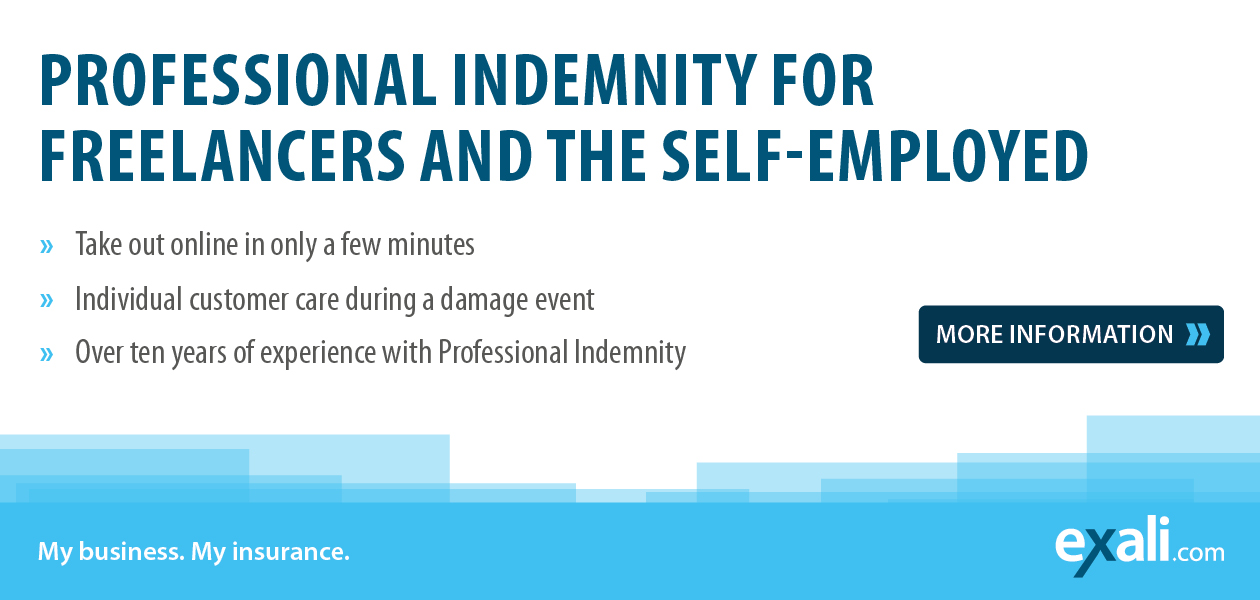Project Errors and Mishaps: What Freelancers Really Have to Do
When you agree to work with a client, there are rights and obligations on both sides. This becomes particularly interesting when disagreements arise during the course of a project - for example, when clients are not satisfied with the work results. In such a case, it is good to know how far your obligations as a freelancer extend and what clients can demand. We have summarised the key points in this article.
Freelancers' rights and responsibilities
When you are a freelancer working with a client, both parties naturally want the project to run smoothly and for everyone to leave satisfied. This is a desirable goal, but unfortunately not always possible. If the client demands improvements or even wants to withdraw from the contract, the situation needs to be handled sensibly and professionally.
The first thing to do is not panic and blindly meet all demands for fear of losing revenues. Instead, check what terms were agreed before the project started and read up on contract law. That way you will know what you really have to agree to and where the limits of third party claims lie.
By the way: Even if you have only agreed the terms and conditions by email, they have the same validity as a classic contract and entail the same rights and obligations. In theory, the same applies to verbal agreements, but it is often more difficult to prove them because, in case of doubt, it is a matter of testimony against testimony. For this reason, we recommend that you always put the terms and conditions in writing before starting a project.
What Contract Type Is in Force?
In order to find out what you actually have to do if your clients are not satisfied with your work, one of the most important aspects is to find out what kind of contract you actually have. In most cases it is either a contract for work or a contract for services.
What Is a Work Contract?
In a work contract, you owe your client a specific piece of work - this could be a piece of software, a design or a site analysis. You can find out more in our glossary under work contract.
What Is a Service Contract?
Unlike a contract for work, a contract for services - as the name suggests - involves you providing a service to your client over a period of time. This could be managing your client's social media channels, for example. For more information, see our glossary under service contract.
Rights and Obligations under a Work Contract
If you have concluded a work contract with your clients, two conditions must be met for your clients to be able to assert claims for defects.
- There must be a substantial defect.
- The defect must become apparent before or at the latest during the performance of the contract (i.e. during acceptance by the client).
When customers report a defect, they can make a number of claim such as:
Supplementary Performance
If the work delivered is defective, the customer can demand supplementary performance. This means either the new delivery of the improved product or the repair of the defective work. As a freelancer, it is up to you to decide which option makes more sense and is cheaper. In any case, you will have to pay for the cost of the repair.
The best Protection when Problems Occur
When disagreements arise between project participants, the most important thing is to remain calm and resolve the differences professionally. If, despite all your efforts, you are faced with claims for damages or a possible withdrawal from the contract, Professional Indemnity Insurance through through exali is by your side.
Do you have any questions about our insurance solutions? Our customer service will be happy to help you! You can reach our experts at +49 821 80 99 46 0 from Monday to Friday, from 9 am to 6 pm (CET).
Contract Withdrawal
If the supplementary performance does not work, clients also have the option of withdrawing from a work contract. If clients exercise this option, both parties are put in the same position as if the project had never taken place. The effects of withdrawal are therefore retroactive. Your clients will no longer be able to use the work they have received from you and they will have to return any tangible benefits they have received. If you have received services from your clients in your position as a freelancer, you are obliged to pay them back. Outstanding invoices will be cancelled.
Reduction
If attempts to rectify the problem are unsuccessful, the client can reduce the payment instead of withdrawing directly from the contract. The same conditions apply as for withdrawing from the contract. The important thing here is that your clients have to make a choice: They can either withdraw from the contract or reduce the payment - both are not possible.
Tip:
A marketing agency insured by exali experienced in this real damage event how quickly such a withdrawal from the contract can become reality: Web Shop Project Fail.
Compensation
This measure is probably the most threatening to a freelancer's professional existence, as the claims for damages can be horrendous even for small projects. Basically, there are two possible options:
1. Compensation in addition to the actual work or compensation for expenses: Clients get to keep the work despite the defects and can claim damages for the removal of the defects or for the damage caused to the work by the defects.
2. Compensation instead of performance: This option is available if the agreed service has not been provided at all or not as agreed and supplementary performance has also failed.
Attention: Claims for damages are still possible even if the time of performance is usually two years ago (depending on the contractual constellation). Such a claim can therefore still affect you even if you no longer expect it after the project has been completed.
The issue of liability is relevant to all freelancers as soon as they sign a contract. Here is an overview of what is important: Types of Liability Explained.
Rights and Obligations in a Service Contract
If you have a service contract with your clients, the situation is slightly different: The parties are not entitled to warranty claims such as supplementary performance, withdrawal and price reduction.
In the case of a so-called "poor performance", i.e. if the client considers that you have performed your work poorly or not as agreed, the client can claim compensation for the damage resulting from the defective performance. It is important to note that you will still be entitled to your full fee, as you are 'only' owed for the work you have done and not for a fixed result. However, it is possible that your fee may be offset against any claims. In addition, if you and your client have agreed additional contractual obligations, claims for damages may exceed those provided for by law.
Note:
Unlike many standard products Professional Indemnity Insurance through exali also covers those aggravations of liability that go beyond statutory liability. In this case, the liability does not end at the end of the project, as in a work contract, but only three years after the claim has arisen. This means that you may be faced with claims well after a project has ended. Therefore, insurance policies that only cover the project period (project cover) are not advisable. There is a great risk that a liability claim at a later date will not be covered. With exali‘s Professional Indemnity Insurance, not only is a project and its duration insured, but you have continuous protection for all your projects as long as the contract is maintained.

Vivien Gebhardt is an online editor at exali. She creates content on topics that are of interest to self-employed people, freelancers and entrepreneurs. Her specialties are risks in e-commerce, legal topics and claims that have happened to exali insured freelancers.
She has been a freelance copywriter herself since 2021 and therefore knows from experience what the target group is concerned about.









